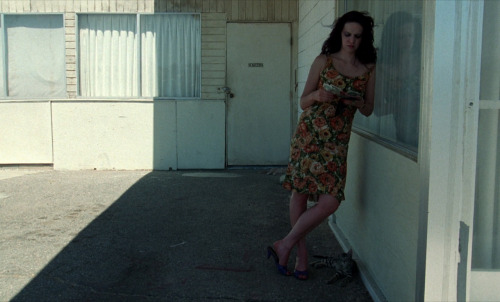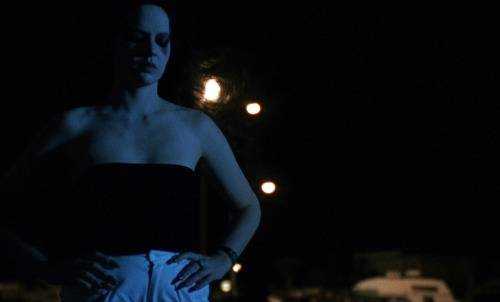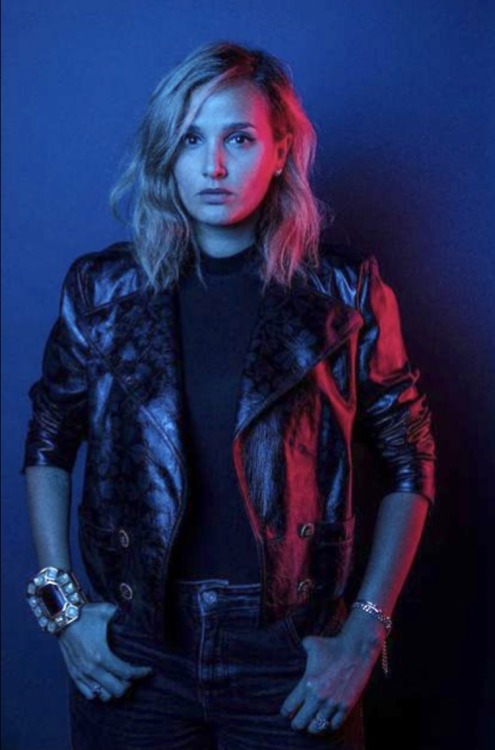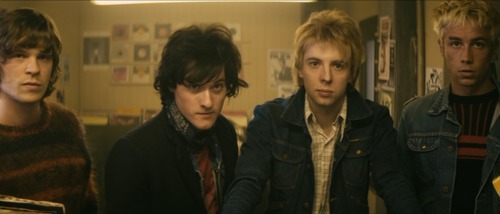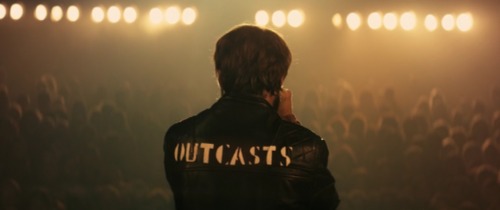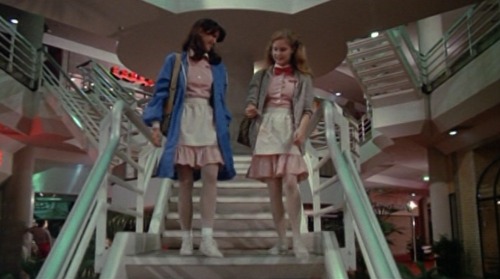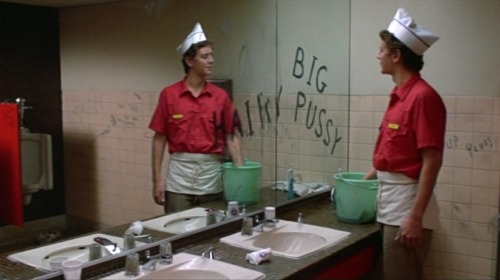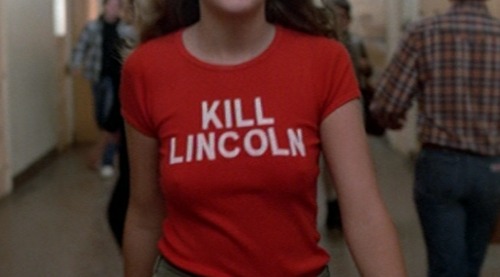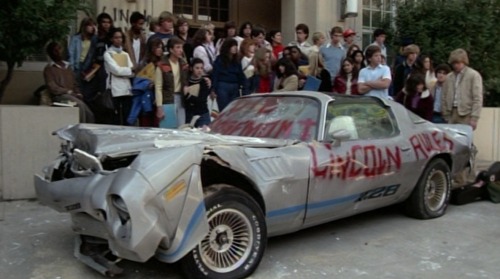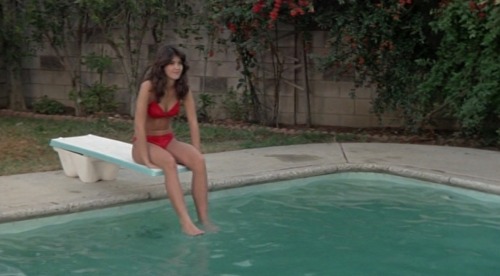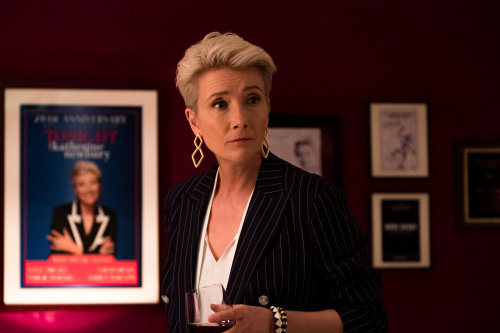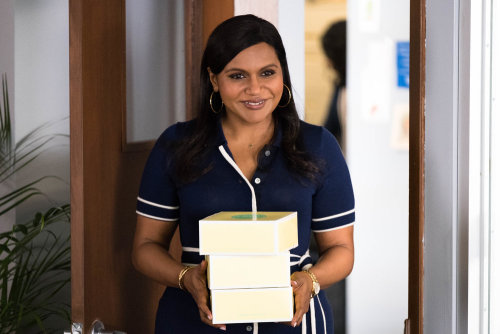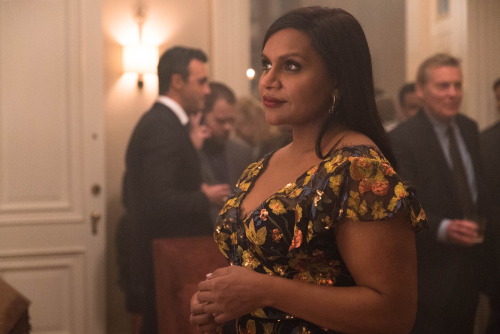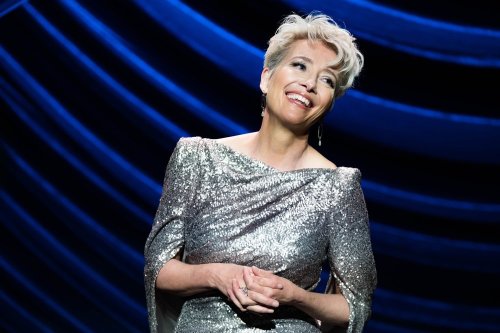#women filmmakers
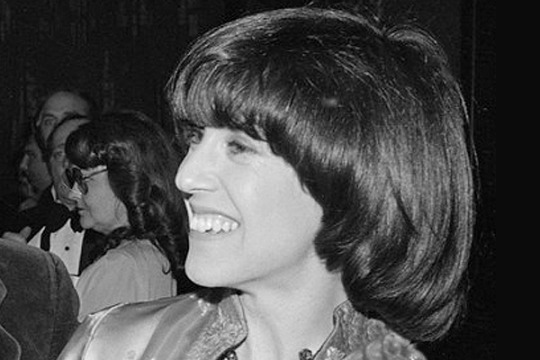
I was more prepared for my divorce than most. Not only am I the only child of a single mother, but I have read Nora Ephron’s Heartburn every year since I was sixteen. This meant that by the time my marriage ended eleven years ago, I had read the novel eighteen times. It was almost prophetic; the story of a woman weathering an emotional storm and keeping her sense of humor has always resonated with me.
Throughout the book, Ephron’s fictional alter ego—Rachel Samstadt—provides a steady stream of trenchant observations like, “A child is a grenade. When you have a baby, you set off an explosion in your marriage, and when the dust settles, your marriage is different than what it was. Not better, necessarily; not worse, necessarily; but different.” Rachel’s humor and her spaghetti carbonara trump her ability to stay married. Heartburn is about a woman controlling the narrative of her divorce: if you’re going to be sad, you’d better be funny.
Ephron famously told Wellesley graduates in 1996 to be the heroines of their lives, and not the victims. I wonder what kind of movie she would have produced about a single mother in her forties dating online in contemporary New York City. She would have insisted on a happy ending, but there might have been some recognition of the stacked deck. Throughout my search for a really good boyfriend, my pursuit of poetry, full-time employment, and parenting my daughter, I have held onto Nora for hope. She married her third husband when she was 45. ‘WWND – What Would Nora Do,’ I asked myself. She wouldn’t feel sorry for herself. She’d get off her ass and write, and she’d get back in the dating saddle without a fuss. I haven’t always been true to these tenets, but at least I knew what I should be doing even when I wasn’t actually doing it.
I saw Ephron once with her husband. They were holding hands walking around an antiques show where I was working. It was a benefit for a botanic garden and I arranged for their photo to be taken in front of an array of flowers. I told her that Heartburn—the book not the movie—meant a lot to me. It was a moment she quickly forgot, no doubt, and I left feeling foolish. I didn’t need to ask Ephron for advice about my life, because I knew what she did. She defied the lemons of two failed marriages and turned them into When Harry Met Sally, the gold standard for all contemporary romantic comedies. She made Potatoes Anna, lima bean casserole, and lemonade.
For me, Ephron’s signature contribution to American culture is not her food or her films, but this short novel. Heartburn is based on her own life but I won’t call it autobiographical because, as Ephron pointed out, male novelists like Phillip Roth who also write from life don’t have their books labeled as such. With Heartburn, Ephron broke a necessary silence about divorce. It was a bestseller because its deceptively light touch makes any woman reading it feel like having a husband who has an affair and leaves is normal. Rachel is an everywoman. She is a mother, a worker, a cook and a friend. She lives up to Ephron’s credo: heroine, not victim, and she weaves recipes into her narrative. She wants you to bake your own key lime pie while cracking jokes, and to hold your head high.
The turning point in Heartburn is the salad dressing. After her husband’s betrayal, in an act of culinary and spiritual generosity, Rachel teaches him how to make her vinaigrette. Her ability to share the recipe is a sign. She can move on. This is just after the dinner party where she throws a pie in his face. She’s already sold her engagement ring to finance her escape and Ephron gives her book a happy ending–only it’s not another man, but Rachel’s return to her beloved Manhattan with her sons.
Often in the funniest of people there is real pathos. I remain haunted–and comforted–by these sentences that reveal that beneath the humor, decades after her divorce Ephron herself wasn’t entirely unscathed: “The most important thing about me, for quite a long chunk of my life, was that I was divorced. Even after I was no longer divorced but remarried, this was true. I have now been married to my third husband for more than twenty years. But when you’ve had children with someone you’re divorced from, divorce defines everything; it’s the lurking fact, a slice of anger in the pie of your brain.”
My daughter was with her father when I heard news of Ephron’s death three years ago. When we talked the next morning, I told her one of my favorite writers died. She said, “You mean the one who was seventy-one? We heard it in the car.” And I replied, “Yes. That one. She was important because she was a great feminist in an understated way. She wrote one of my favorite books and she led the way for women to write and direct successful movies. She loved her sons.”
What I didn’t say is that Ephron is now the guardian angel of divorced mothers and writers everywhere. She makes it possible for us to be both marked and reconciled, all the while believing not just in second acts, but the possibility of even more delicious thirds—served with pie, of course, strawberry ice cream on the side, and whipped cream, but only if it’s real and not out of a can.
Caledonia Kearns is the editor of two anthologies of writing by Irish American women, Cabbage and BonesandMotherland. Her essays have appeared in The Boston Globe, The Awl and The Hairpin, and her poems have appeared in Drunken Boat, Painted Bride Quarterly, and The Mom Egg Review, among others. She lives with her daughter in Brooklyn and has recently completed a Heartburn-inspired memoir-in-verse, Crossing the Gowanus.
The Athena Film Festival is now open for submissions through September 15, 2014.
What We Look For:
Documentaries, Features and Shorts that:
- Reveal the diverse narratives of women leaders from all walks of life—narratives of ambition, courage, strength and resilience.
- Showcase women leaders who help us interpret the reality of the modern world—captivating stories of truth, determination, innovation and vision.
- Highlight the talents of emerging artists — capturing a new generation’s take on what truly makes exemplary women leaders.
Keep In Mind:
- All films must feature a female in a leadership position at the center of the story.
- Films may be directed by a person or people of any gender.
- Films that are directed by women but do not focus on female leadership will not be considered.
Don’t wait until it’s too late to send in your films!
Good Vibrations (2012) dir. Lisa Barros D’Sa/Glnn Leyburn
“ When It comes to punk: New York has the haircuts, London Has the trousers, but Belfast has the Reason! “
Post link
Fast Times at Ridgemont High (1982) dir. Amy Heckerling
“ First of all Rat, you never let on how much you like a girl. “Oh, Debbie. Hi.” Two, you always call the shots. “Kiss me. You won’t regret it.” Now three, act like wherever you are, that’s the place to be. “Isn’t this great?” Four, when ordering food, you find out what she wants, then order for the both of you. It’s a classy move. “Now, the lady will have the linguini and white clam sauce, and a Coke with no ice.” And five, now this is the most important, Rat. When it comes down to making out, whenever possible, put on side one of Led Zeppelin IV.”
Post link
An Oscar nominee for Best Documentary — Short Subject, Carol Dysinger’s beautiful, Tribeca-winning Learning to Skateboard in a Warzone (If You’re a Girl) tells the story of young Afghan girls learning to read, write—and skateboard—in Kabul.
(Source:AETV.com)
“Even when her characters stand at life-altering crossroads, Emma Thompson always radiates the cool confidence of a certified genius who possesses an unshakable belief in herself and her gifts. We may sometimes doubt the sustainability of the women she plays, but we never doubt Thompson’s ability to imbue their experiences with humor, grace, and profundity. Late Night’s Katherine Newbury, a venerated comedian facing the loss of the talk show that is her lifeblood, is a role tailor-made for the sharp-witted comedic gifts that Thompson is seldom invited to utilize in her latter-day career, save for the occasional awards show presentation. Her sardonic one-liners consistently kill, but Thompson also knows that a withering, well-timed look or a purposeful pause can speak equal volumes. Yet what really distinguishes Thompson’s performance is the prickly, supercilious air that enshrouds Katherine, a byproduct of the actress’ welcome disinterest in making the character palatable or easy to root for; Thompson is too honest an interpreter to sand down the off-putting edges of this deeply flawed woman or simply heroize her last stand against the turning tides of network television. That we root for Katherine nevertheless is a natural inevitability when casting Thompson, who guarantees that Katherine’s moments of pathos, vindication, and victory will be earned and balanced out by the plausible, warts-and-all multidimensionality that is this sublime artist’s stock-in-trade.
Late Night is very much Thompson’s show, but it’s also a reminder that screenwriter and costar Mindy Kaling shines brightest when writing to her strengths, one of which is endowing often naïve, sometimes corny, and permanently genuine underdogs with worth and vitality on the page and screen. As Molly, the tokenized and exceedingly green new addition to Katherine’s all-male writers’ room, Kaling delights by leaning in to the character’s earnestness with the unabashed exuberance of a comedian who is accustomed to, say, looking like a fool or extending an awkward moment a beat or two past the normal threshold of comfort. It would be easy to play a character this painfully sincere with winking, in-on-the-joke irony—in other words, to emphasize the lie of one’s own performance. Kaling excels by doing the opposite, committing so hard to Molly’s verbal and physical faux pas that we are not only amused by the character’s wide-eyed gaucheness but duly convinced of it. Yet Kaling also knows that sweetness need never be confused for simplicity, and she emerges as a terrific proponent for this would-be heroine, giving Molly the cleverness and dignity to make us believe she could lift the dinosaur that is Katherine’s show out of a creative rut. By film’s end, Molly has proven that her ideas, smarts, and “lack of boundaries” are imperative, and her creator has persuaded us that her performative wit and pluck are qualities which the floundering American comedy should continue to harness. Kaling’s performance, like Thompson’s, suggests the tougher, more pointed, less polite satire Late Night might have been, but watching this unexpected yet inspired pair play off one another is never less than a spikily satisfying diversion.” — Matthew Eng
The 12 Best Female Film Performances of Early 2019
(Source:TribecaFilm.com)
Post link






